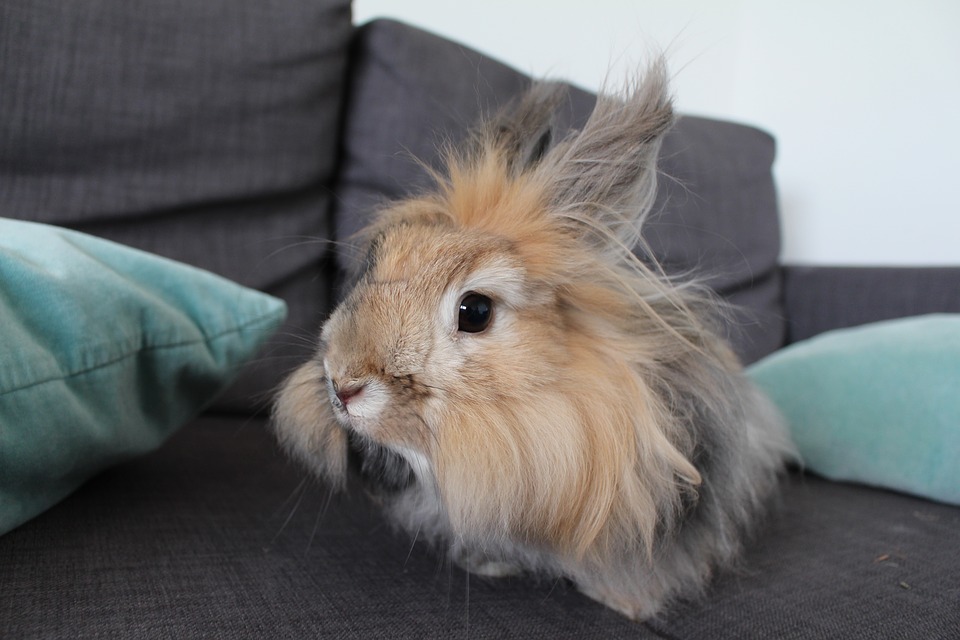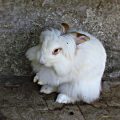Table of Contents
How to care for Angora rabbits? Angora rabbits need a specialized sort of care, whether they are kept as pets or as wool producers. As pets they require a decent amount of your time to help them groom their fur, get nourishment, exercise and affection. How to care for Angora rabbits? The most important thing to determine when considering taking in an Angora is your commitment and dedication to its welfare and daily care. In this article, you’ll learn how to care for Angora rabbits?
How to Care for Angora Rabbits: What You Need to Know
When it comes to purchasing an Angora, a collective number of breeders state that high-quality; healthy Angoras of breeding stock can be obtained for as little as $50, there are breeders who would sell these rabbits in excess of $200. Show rabbits are costlier than rabbits acquires for other uses. There is a market for high-quality show rabbits. However, rabbits of show stock may not be suitable for breeding purposes. Keep this in mind when considering breeding your show rabbit. The American Pet Products Association has suggested that pet owners dole out around $116 every year on their pet rabbits. It would be safe to assume that owners of show rabbits spend a little more than this amount for their high-quality show pet.
Your Angora rabbit will need to replenish its food supplies each month along with a couple of other necessities like non-surgical veterinary care. According to the APPA, the average yearly cost of caring and providing for the needs of an Angora rabbit can cost an average of $116 a year.
How to Care for Angora Rabbits: Angoras as Pets
How to care for Angora rabbits? There are many upsides to taking in an Angora rabbit as a pet. Not only is it a friendly, docile, intelligent animal to have as a family pet, its wooly fur is highly sought after as well by crafters and hobbyists. A keeper can make some extra money on the side with the wool of their Angora and sell it directly to interested buyers. Rabbit manure is another lucrative money maker because it is makes for excellent fertilizer and can be sold to gardeners and farmers in the area. The Angora rabbit is a wool fiber producing animal and its wool is widely sought after by hobbyists. Should a caregiver of an Angora rabbit wish to turn their hobby into a side business and start profiting off of the rabbits wool, they will simply need a business plan and a booth at their local Farmer’s Market. In New South Wales keeping two domestic type rabbits was made legal in October 1995. This opened the way for commercial rabbit farming there.
How to Care for Angora Rabbits: Want to be a Hobbyist?
How to care for Angora rabbits? Any individual hoping to make a profit out of their hobby has to first figure out what sort of small business they will be willing to undertake because there will be some sort of investment- in the form of time, money and effort – to be allotted. An individual looking to care for an Angora should be ready for the daily routine of grooming the animal as its dense fur, if left un-groomed, will tend to molt and tangle. Determining license requirements for the Angora rabbit is a question frequently asked by novice keepers. They want to know how many rabbits they can keep and if a certain number of acquired rabbits deem obtaining a license.
It is illegal to keep a wild rabbit as a pet or for commercial purposes in NSW as wild rabbits have been carrier of and has spread Rabbit Calicivirus Disease (RCD) across many parts of Australia radically reducing the European wild rabbit population in some locales. Guidelines have been set in these places in order for individuals to be able to raise rabbits for meat or fiber-producing business.
Before You Decide on Keeping Angoras
How to care for Angora rabbits? Owning an Angora rabbit as a pet does not require a license in the United States. Private breeders breed their Angoras with the intent of selling the rabbits for profit to interested buyers. Those wishing to register their Angora should apply with rabbit clubs and associations directly. Registry with a rabbit club does not necessitate showing your Angora. The need and acquisition of a rabbit license will largely depend on why a license is needed. A rabbit license will be required for those looking to venture into the business of supplying rabbits for research purposes.
Rabbit dealers and breeders making anywhere from $600 – $1000 are required to obtain a USDA breeders license. Commercial producers of pets which sell to brokers, pet stores and wholesalers are all licensed according to the AWA. If a keeper wishes to venture into supplying lab rabbits (not Angoras, mind you) they would then most certainly need to obtain a license to operate a business of this scale.
Some Laws to Keep in Mind
How to care for Angora rabbits? To maintain standards, research and lab facilities utilizing animals are licensed and inspected by the USDA. Small, part-time farms of agricultural producers in Pennsylvania operate under Pennsylvania’s Clean Stream Law. One specific portion of this law is the Nutrient Management Act. All farms are a potential source of groundwater or surface pollution. Portions of this law may apply to you depending on the mix of enterprises you may have or want to establish. If a keeper intends to keep a large number of pets in a rabbit farm, they should get in touch with their city’s Soil and Water Conservation District to find out which of the regulations apply to the intended operation. It would be wise to pay your local municipal hall a visit where you can inquire about state regulations regarding the ownership of Angora rabbits which may apply to you. We hope we answer your question, how to care for Angora rabbits? Stay tune for more posts!






 Author and long-time animal lover. Sharing knowledge on pet care through experience and the written word.
Author and long-time animal lover. Sharing knowledge on pet care through experience and the written word.